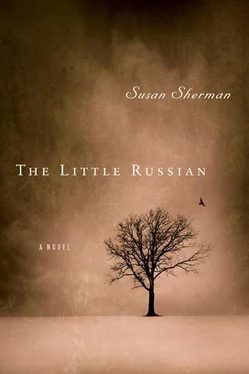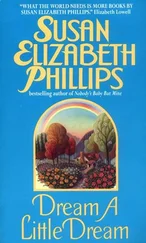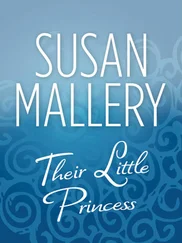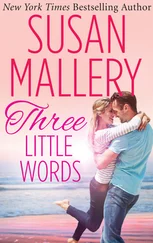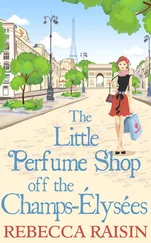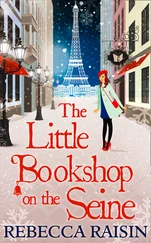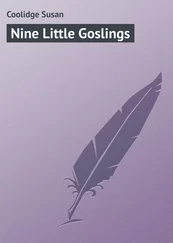“Oh. I’m sorry. How did they die?”
“They just did. Sometimes people die for no good reason.”
She thought this was an odd answer. She felt awkward after that, like she had committed some breach of etiquette, and didn’t know what to say.
They rode on in silence for a while, until he said, “Her name was Sophie. She was very beautiful, my mother. She had long fingers. She used to say they were her secret when she played Rachmaninoff. She had great plans for me. She wanted me to grow up to be a famous doctor, not the kind who sees patients. She said anybody could do that. She wanted me to do research and make discoveries and get my name in the history books.”
“Is that what you wanted?”
“No. Or rather I didn’t know what I wanted. I suppose I just wanted to make her happy.”
“And what about your father?”
“He was an educated man. He read to me when I was little and taught me to play chess and told me scary stories.”
She laughed. “What kind of stories?”
“Mostly ones about dybbuks and golems and vampires.”
“Weren’t you frightened?”
“Of course, but that was the point. I wanted to be frightened. Once he told me about the blue man who lived under our house. I used to dream about him. I remember he had sharp teeth and an evil smile. I wasn’t sure what he wanted, but I was pretty sure he was up to no good. After that I wouldn’t go to sleep without a lamp. My father took me under the house to show me there was no one there, but it didn’t do any good. I still wouldn’t go to bed without the lamp.”
“And what happened to him?”
“The blue man? I expect he’s still there.”
“Under the house?”
He looked out across a field where peasants in belted tunics were moving up the furrows in careless concert, their long-handled scythes cutting swaths of ripe wheat, their heads bent to the task.
“Under every house.”
THAT NIGHT, Berta stood by the window brushing out her hair and looking down into the street. There was a peddler coming home from the road. He wore a shabby overcoat and carried a bundle on his back. The torn lining of his overcoat dragged on the ground behind him. Usually the peddlers stayed out until Friday afternoon, when they came home for Shabbes, but this one was coming home early, exhausted, shoulders slumped against his luckless life. She stood there not really seeing him, but thinking of Hershel, of his parents, and wondering how they died.
She put her brush on the nightstand and climbed into bed next to Lhaye, who was already asleep. She closed her eyes and soon she too was asleep—dreaming that she was a little girl playing in the yard behind the grocery with a caterpillar on a stick. She was sitting in the dirt watching it inch up to one end of the stick and then turning the stick upside down, watching it inch back up again. Someone called her name and she looked over at the crawl space under the building. There she saw a face grinning back at her from out of the darkness. It called her over. She didn’t like the look of its teeth. They were sharp and very white against the gleam of its blue skin.
December 1904
WHEN BERTA arrived at the women’s bathhouse, she knew that it was silly to hope for clean water. The water was rarely changed and always an unusual shade of green. In fact, the whole place smelled of the fecundity of a healthy swamp. Even the little foyer smelled of overripe vegetation.
Berta climbed the steps of the raw-boned building, opened the door, and stepped inside. The bath keeper’s wife was sitting on a chair in the overheated foyer with her knitting on her lap. She was making a blanket for her grandchild, and although it wasn’t even finished yet, it was already dirty from the coins she handled all day long.
The old woman looked up at the door and frowned. “It’s not closed all the way,” she said, drawing her shawl up around her shoulders.
Berta turned back to the door and slammed it shut. Then she stepped forward, dug into her pocket for the ten-kopeck coin, and handed it over. “Is the bath clean today?”
“Of course it is clean. It is always clean. I clean it myself.” Her eyes were the color of the bathwater and her mouth was a line of disappointment sunk into the cavity between her cheeks. Berta didn’t argue. Instead she took the towel that was offered, so thin it was nearly transparent.
In the summer Berta bathed in the river at a spot reserved for women where a spit of land curled around a tiny backwater and trees and bushes grew up into a privacy screen. Here the water was cold and clean, and afterward there was a little beach where she could lie out in the sun and dry off. But now it was winter and the snowy drifts made cushions and mounds out of the bushes and fence posts. The Dnieper flowed under a thick layer of blue-green ice and the beach was covered in snow. In the winter there was only the bathhouse.
Berta walked into the bathing area, undressed, and laid her clothes out on a bench. She took off her stockings and shoes last so she wouldn’t have to stand barefoot on the moldy tile and stepped gingerly into the bath. It was a tile pool filled with murky water, big enough to accommodate eight or ten bathers with steps at either end. She tried not to think about the marble bathroom she left behind on Leontievsky Street. It did no good to think of these things. They were gone and were not coming back. Instead she waded down the steps, plunged into the fetid water, stood, soaped, and plunged down again to rinse off. Then she climbed up the steps, the water cascading off her body, and went over to a barrel of water that stood in the corner. She dipped a small bucket into it and poured the river water over her head and shoulders, gasping from the shock of the melted snow.
“That will kill you dead, Berta Lorkis.”
Berta felt blindly for the towel and dried her eyes. It was Meshia Partnoy, Hershel’s landlady, spreading out her things on a nearby bench.
“You’re going to catch your death with that freezing water.” She had begun to undress, seemingly quite comfortable with her surroundings. Her flesh was pale and moist and seemed native to this steamy swamp. “I don’t see why you just don’t sit in the bath like everyone else. It’s very refreshing.”
“It’s green and it stinks.”
“ Nu ? A little green never hurt anyone. It’s a mineral bath from the springs under the ground. That is why it smells so bad. But it’s good for the joints. Ask anyone around here, these baths are very healthy.”
Meshia Partnoy climbed into the pool and lowered herself into the water with a sigh and crouched down, displacing a gentle current that circled her dimpled thighs and rose up over her breasts and shoulders to her chin. She closed her eyes. Without opening them again she said, “I’m coming to see you tomorrow. I want some yard goods. I am going to make myself a new dress.”
Berta looked over at her. “What’s the occasion? It must be something special.” A new dress was an event in Mosny. Why make a new one when a used one was just as good and could be bought from the rag dealer for a fraction of the cost?
Froy Partnoy opened her eyes. They were glittering buttons in the half-light of the bath. “You haven’t heard? We are going to America. My brother has sent us the money and we are off in a week.”
“To America? Mazel tov. I hear it’s a wonderful place. You should be very happy.”
“Of course I should be happy. What is not to be happy about? My brother owns a pickle factory there in the big city. He has fifty men working for him and an ice box and a toilet right in his house.”
Berta liked Meshia Partnoy and her son, but frankly she could not have cared less if they went to America or to the moon. It was the woman’s lodger she was thinking about.
Читать дальше
